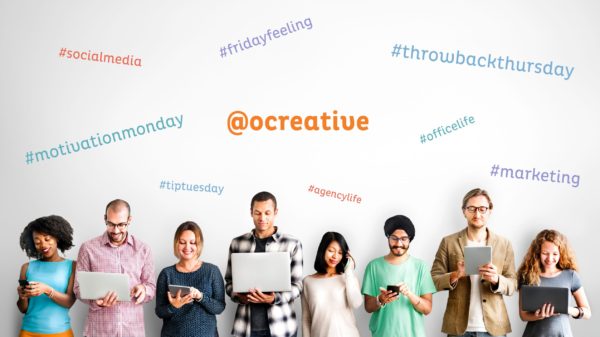The world is changing at a rapid pace, and sales and marketing practices are changing even faster.
Customers have more buying options available to them than ever before, and every day new options emerge. Competition in the business environment has grown immensely over the last 20 years, thanks to Web 3.0 or better known as social media.
Everything that you do requires putting extra effort into perfecting your sales & marketing strategies. It’s not enough just to talk about your product/service anymore. You need to provide relevant content for people who search for related topics on Google or on competitors’ websites, blogs, and forums (user-generated content).
This means that the “push” strategy (putting pressure on customers by force) will no longer work, it is time to switch to the “pull” strategy (giving people what they want, when they want it).
In this article, we will discuss the 6 strangest trends of sales & marketing that will transform your business in 2021. This is an exciting time for you as a marketer where new technology and insights are being developed every day.
The majority of these trends have been predicted by experts, but we’ve also included an added opinion as well.
#1 Intelligent Agents Based On Big Data Analytics
Big Data has already become a reality – the amount of data that are generated daily is so huge now that humans simply can’t analyze it efficiently. This leads to wasted potential and lost revenue opportunities.
Big companies such as Google and Amazon are using cloud technologies to analyze data on their servers. They provide users with the information they need without asking, based on previous search activities. However, the price of such a service is far beyond reach for small businesses.
Intelligent agents based on Big Data analytics in combination with natural language processing and speech recognition technology. This puts analytical power into our hands, allowing us to optimize marketing & sales processes effectively.
The key advantage of this technology is that it learns by itself – the more you interact with it (for example by adding new customer contacts), the smarter it gets. An intelligent agent can be compared to the Siri app from Apple. But in this case, we are talking about an artificially intelligent software program rather than just a smartphone application.
The biggest value of such a system is to save on human resources. You no longer need sales representatives to follow up with old leads, which will free up time for other tasks such as finding new customers.
You also get more accurate data analysis because there are fewer errors in entering data. And the software is able to identify patterns & relationships that humans can’t notice until after a long period of time.
This means that your business will have an upper hand when it comes to competition. As you can launch new products/services faster than anyone else in the industry.
#2 Voice Recognition Technology
Voice-activated systems are already widely used by consumers (e.g chatbots) but their use within business environments is still underdeveloped. People switch off from phones or tablets because they prefer typing over talking.
This can be fixed with better voice recognition technology, which will automatically understand what a customer says and provide the right information.
The main advantage of using this system is that it provides more flexibility for both sales & marketing teams and customers. You don’t have to sit in front of your computer screen or touch-screen smartphone every time you want to ask something or check on the status of an order/customer inquiry.
You also get much faster feedback from your software since typing is usually slower than speaking. Voice recognition can be incorporated into any existing CRM software package you use so there is no need to change anything about how you operate. Except now all interactions will take place via phone rather than a keyboard.
#3 Improved Social Media Engagement
Social media is here to stay and it will only get more and more powerful as time goes on. The majority of businesses have a Facebook page today but only a few are truly adapting this platform into their marketing & sales strategy.
The reason for this is that managing multiple accounts simultaneously can be both difficult and time-consuming. You need to keep track of demographics, interests, likes/dislikes, etc for each customer individually in order to provide them with the most relevant content and targeted offers.
This makes it impossible to manage such an operation manually also because there simply isn’t enough time available during regular working hours.
However, thanks to advances in technology we now have social media management tools that take care of all these tasks automatically. This allows us to engage customers more effectively.
One of the best examples is Facebook PIXEL, a service that allows you to integrate Facebook code into your website in order to track everything – who visits your page, what they like/don’t like, etc.
In tandem with customer relationship management software, this becomes a powerful combination for developing future marketing campaigns and identifying potential new clients.
#4 Selling Products Online Vs Brick & Mortar Stores
Until recent years, it was difficult (if not impossible) for small businesses to compete on equal terms with large retail chains or e-commerce giants such as Amazon simply because of limited choice and low customer loyalty.
Consumers are now much more demanding as time goes by but we also have greater access to information online, which can only be a good thing.
The main advantage of online shopping is that it does not require people to drive across town just to buy a product they need. This saves time and thus money (both in terms of fuel costs and the fact that you don’t have to pay someone else to do all the driving for you).
This also eliminates all sorts of inconveniences such as traffic jams, low parking space availability, etc. In addition, you no longer have to worry about other customers bumping into one another or staff members getting distracted by something/someone else while handling your order.
The last few years saw huge advances by Amazon in this territory – now it is possible to practically buy everything from groceries & household items to electronics & furniture, all online.
#5 Fulfilment By Amazon (FBA) Service
Many would agree that owning a company’s own fulfillment center is expensive and requires a great deal of overhead, which smaller businesses can’t afford.
What an FBA seller does instead is to ship their products to Amazon, where they receive orders via the same platform as any other third-party merchant but instantly have access to millions of customers worldwide and get help with packing & shipping goods.
This means that companies do not need to maintain their own warehouses or worry about inventory management (Amazon takes care of everything).
Although it’s true that this business model falls under the category of dropshipping in some ways, FBA sellers still face many of the problems that come with this approach (for example, customers must still trust a merchant and wait for their products to arrive before making a purchase).
The biggest issue by far is the fact that sellers have no control over Amazon’s website which can sometimes become flooded with counterfeit goods. In addition, they can’t engage customers using information such as their name or address due to privacy concerns.
What is Fulfilment by Amazon? – A beginners guide
The future of sales & marketing will also see an increase in opportunities for small businesses. Because there are now dedicated channels on most e-commerce platforms for smaller merchants. As they want to set up sales but don’t have enough money/time/knowledge to handle everything themselves.
There is a growing number of companies that specialize in offering services to smaller merchants and Fulfilment by Amazon (FBA) is one of the most popular ones.
#6 Smartphones & Mobile Devices Will Overtake Computers As #1 Source For Web Traffic
The rise of smartphone sales has meant that more people are accessing the Internet through this medium, which gives them virtually unlimited access to information at all times. Mobile users can be engaged with marketing campaigns if businesses use appropriate technology to capture their attention and display relevant content on websites or via apps.
The main advantage here is that you don’t have to wait for customers to visit your website; they will instead see ads when they use Facebook, Twitter, etc. This helps you market directly – just imagine how many people would have to walk into your store to meet all of them.
This model also means that businesses can properly connect with customers on social media and show special offers in real-time, for example. This is not just a convenient way to reach out to people; it’s also much cheaper when compared with non-digital marketing methods (something which small businesses often have trouble paying for).
Conclusion:
You don’t have to be a marketing guru to predict the future of sales. Nevertheless, keeping up-to-date with the latest trends and technological developments is key in order to keep your company competitive on a global scale.
If you are looking for ways to improve your product line or would like to find more customers, you should always start by doing some research. Talk with fellow business owners, read blog posts, etc. You never know what kind of helpful information you might find!
Opinions expressed by AsianBlurb contributors are their own.
Maham Qasim is an English Literature and Economics student at Forman Christian College University with an interest in writing. Maham was born in Pakistan and raised in Saudi Arabia and is now pursuing her education.




































